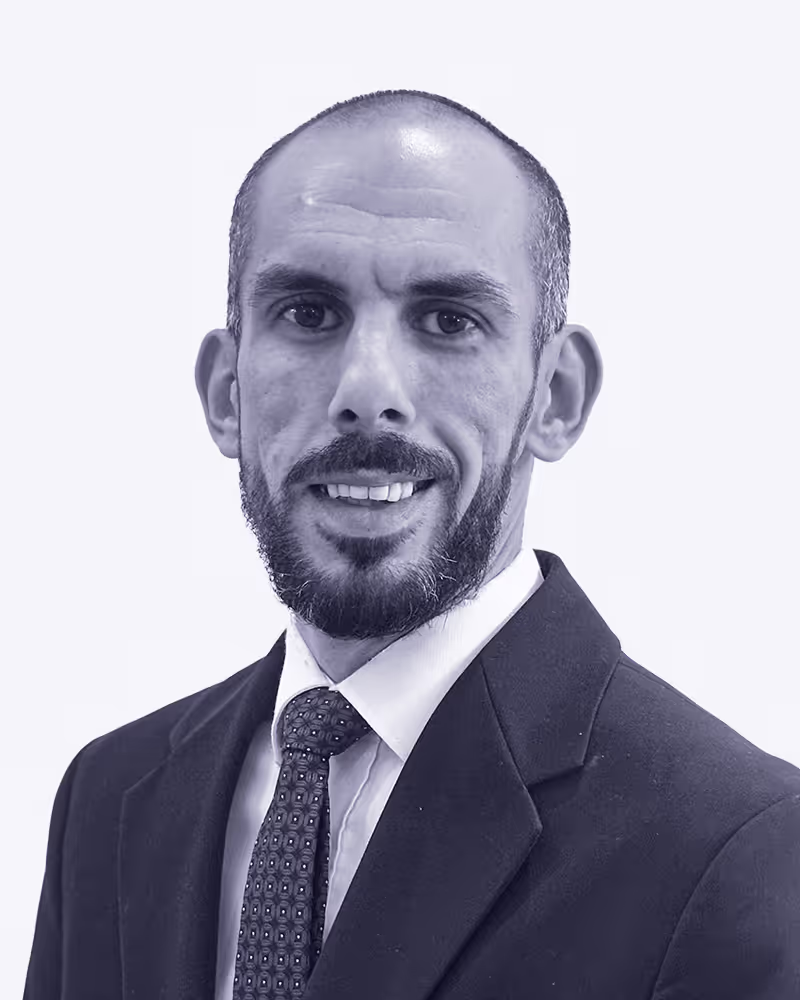الرئيس التنفيذي للمستقبل
الشرق الأوسط
اكتشف مجتمع خبراء التمويل الأسرع نموًا في الشرق الأوسط. انضم إلينا لإجراء مناقشات صريحة وفعاليات حصرية والعديد من فرص التواصل، حيث تنتظرك رؤى قيمة لتعزيز رحلتك في مستقبل التمويل.
اللقاءات المالية:
ورش العمل المادية وتجمعات الشبكات الاجتماعية والندوات الحية عبر الإنترنت التي تركز على موضوعات التمويل والمحاسبة الأساسية.
المجتمع عبر الإنترنت
مجتمع نشط على Whatsapp ومساحة مخصصة لتبادل الاستراتيجيات وفرص العمل.
مواد تعليمية
مقابلات الخبراء والمقالات الشاملة والأدلة المعدة لمساعدة قادة التمويل
ذا جوب فاولت
لوحة عمل منسقة تربط المتخصصين الماليين بفرص العمل والموارد المخصصة للنمو الوظيفي.
تواصل مع أفضل العقول المالية من الشركات سريعة التطور في الشرق الأوسط














الأحداث في "الآن"
انضم إلى المناقشات حول كل شيء في مجال التكنولوجيا المالية
محادثات مع كبار مسؤولي المستقبل
كبار القادة في الشرق الأوسط يناقشون مستقبل التمويل
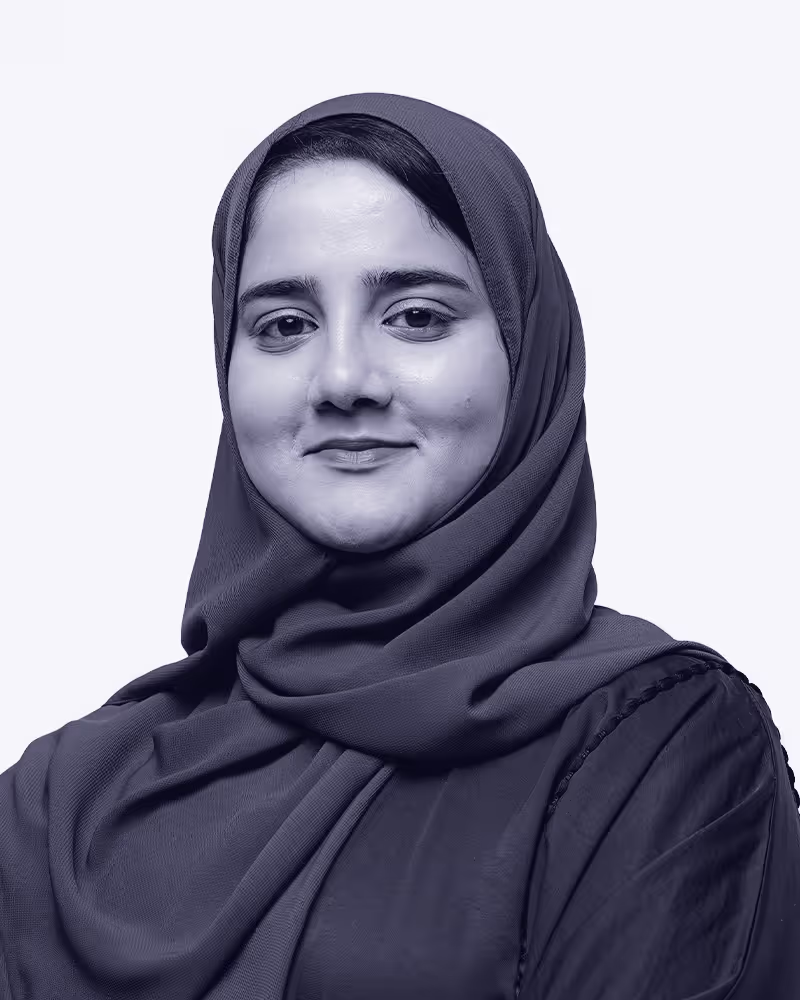



«إن كونك جيدًا في التمويل لا يقتصر فقط على إنشاء أرباح وخسائر قوية أو النظر في بياناتك المالية. يجب عليك الخروج من حدود القسم الخاص بك ثم طرح الأسئلة والنظر إلى الأشياء من منظور أكبر».

كان لديك مسار غير تقليدي في القيادة التقنية والمالية. كيف بدأ كل شيء؟
منذ حوالي 10 سنوات، اعتقدت أنني سأصبح شريكًا في شركة تدقيق. كانت هذه هي الخطة.
لكن فرصتي الحقيقية الأولى جاءت من شركة تأسست في الرياض، بدون مكتب، بل مجرد مستودع. أقنعت والدي بالسماح لي بإجراء مقابلة هناك، وهكذا انضممت إلى Wadi.com. كانت سريعة الوتيرة وتجريبية وفوضوية بأفضل طريقة. في غضون أشهر، كنت أقوم ببناء أرباح وخسائر كاملة، وليس فقط تحليل الأرقام.
وفي وقت لاحق، انضممت إلى Shipa لبناء عملياتها في السعودية من الصفر، الأمر الذي علمني الكثير عن الإعداد القانوني والتنظيم ومدى تنافسية السوق حقًا.
الآن في Squadio، أقود التمويل والاستراتيجية. إنها ليست مجرد وظيفة، إنها مختبر إبداعي. نحن نبني ونتطور ونتوسع، وأنا أحب ألا يبدو أسبوعان متشابهين.
لقد صعدت إلى منصب المدير المالي بعد سنوات في التمويل التشغيلي. ما الذي تغير عندما أصبحت الوظيفة أكثر حول القيادة؟
يجب عليك الخروج من حدود القسم الخاص بك وطرح أسئلة أكبر. لم يعد الأمر يتعلق بـ «هل أرقامي صحيحة؟» يتعلق الأمر بـ «ما الذي نبنيه، وهل هو مستدام؟»
القيادة، في أي وظيفة، تعني أنه لا يمكنك البقاء في صومعة. يجب عليك تحدي الآخرين وفهم المنتج والتصغير إلى الصورة الأكبر.
غالبًا ما يُنظر إلى التمويل على أنه عقبة في الشركات الناشئة سريعة الحركة. كيف يمكنك تجنب ذلك؟
يجب تضمين التمويل في نظامك. لا أريد أن يتنقل الناس باستمرار ذهابًا وإيابًا مع الفريق المالي للحصول على الموافقات.
لذا فإنني أشير إلى المواءمة مبكرًا. سأجلس مع فرق المبيعات أو الفرق الأخرى وأخبرهم بما هو ممكن وما هو غير ممكن حتى لا يحتاجوا إلى السؤال في كل مرة. نحن أيضًا نبني الأشياء في النظام نفسه.
على سبيل المثال، عندما قمنا بالتوظيف الآلي، أنشأنا أداة تعقب توقعات التوظيف في ClickUp. إذا كان الدور أعلى من الحد المعتمد، فسيكون ذلك محظورًا. إذا كان في الداخل، يمكنك المضي قدمًا دون أن تسألني. هذا هو الهدف: الوعي الذاتي والوضوح، وليس الاختناقات.
لقد عملت بشكل وثيق مع المستثمرين. ما الذي يهتمون به أكثر مما تفتقده فرق التمويل أحيانًا؟
يرغب المستثمرون في الغالب في التركيز على الاستدامة. ليس فقط حرقك أو هوامشك أو الاسترداد الخاص بك. إنهم يهتمون بالقيمة التي يجلبها عملك لهذه المنطقة وما إذا كان سيستمر.
يجب أن تخلق جولة واحدة من 5 أو 10 ملايين قيمة حقيقية، لا أن تؤدي فقط إلى جولة أخرى. أيضًا، لا ينطبق كل شيء من وادي السيليكون هنا. أنت بحاجة إلى نموذج يناسب هذا السوق.
عندما تقوم بتوظيف المواهب المالية في شركة ناشئة، ما الذي تبحث عنه؟
مهارات اتصال استثنائية وفضول. أريد أشخاصًا يطرحون الأسئلة، وليس فقط تشغيل الأرقام. يفضل الكثير من العاملين في مجال التمويل البقاء في الخلفية. أنا لا أريد ذلك. أريد شخصًا يقول: «دعونا نحجز اجتماعًا ونفهم سبب حدوث ذلك.»
العلم الأحمر بالنسبة لي هو عقلية الشركات. في شركة ناشئة، ربما قمنا بالعملية قبل ثلاثة أيام في اجتماع. لا يوجد دليل. يجب أن تكون مرنًا.
أنا أعمل على قاعدة 80-20:80 في المائة جيدة بما فيه الكفاية. تحركي. إذا كنت مهووسًا بتنسيقات العروض التقديمية والكمال، فلن تنجو في شركة ناشئة. لا يتعلق الأمر بالبكسل المثالي. يتعلق الأمر بالتأثير.
ما هي الأداة الوحيدة التي غيرت حياتك اليومية حقًا؟
باور بي. لقد غيرت طريقة عملنا تمامًا. اعتدنا على سحب البيانات يدويًا فقط للحصول على رقم واحد. الآن لدينا لوحات معلومات حية حيث يمكنك التعمق بقدر ما تريد.
ليس فقط للتمويل. نحن نستخدمها في جميع أنحاء الأعمال. من الأدوار المفتوحة إلى توظيف خطوط الأنابيب إلى توقعات الربحية. وهي حية. هذا غير كل شيء بالنسبة لنا.
كما نستخدم تحليلات SIFT، التي تتكامل مع Xero. فهي تساعد في الدمج والنسب والتحليلات في مكان واحد.
لقد قمت ببناء تخطيط موارد المؤسسات وكشوف المرتبات والميزنة والامتثال من الصفر. ما هو الدرس المؤلم ولكن القيم من ذلك؟
أنت لا تدرك أبدًا مدى السرعة التي يمكنك بها التوسع. ومن ثم يصبح النظام الذي اخترته عقبة.
من الجيد البدء بالأدوات الأساسية. هذا أمر طبيعي في المراحل المبكرة. ولكن لا تفرط في التخصيص أو الإفراط في الهندسة في وقت مبكر جدًا. فكر دائمًا: هل يمكن لهذا الحجم أن يكون معنا؟
اختر الأدوات سهلة الاستخدام. إذا كان الأمر معقدًا للغاية، فلن يستخدمه فريقك بشكل صحيح. ابدأ صغيرًا، ولكن قم بالبناء مع وضع الغد في الاعتبار.
لقد عشت في السعودية لمدة 20 عامًا. ما الذي يثيرك أكثر حول النظام البيئي اليوم؟
لم نعد نقوم فقط بتكرار المنتجات العالمية. نحن نبني لهذه المنطقة من الصفر. هذا مثير.
الأمور تسير بسرعة: تمويل جاد، توظيف جاد، منتجات جادة. وهذا يخلق الكثير من التحديات الجديدة أيضًا.
بالنسبة لفرق التمويل، يتمثل التحول الأكبر في فهم كيفية شرح نماذج الأعمال الجديدة، حتى عندما لا تكون الجهة التنظيمية موجودة بالكامل بعد. يجب عليك مساعدة المؤسسين ومراجعي الحسابات على فهم كيفية تدفق الأموال داخل وخارج. التعليم لا يقل أهمية عن إعداد التقارير.
ما الشيء الوحيد الذي يحتاجه المهنيون الماليون للنمو ليصبحوا قادة لن يتعلموه من الدورة التدريبية؟
إنها الثقة، بصراحة.
يمكنك الحصول على جميع الشهادات التي تريدها، ولكن إذا لم تتمكن من التحدث إلى الأشخاص أو بناء علاقات أو بدء محادثة، فستواجه صعوبة.
لن تدخل الغرفة وتقول، «مرحبًا، هل تقوم بجمع الأموال؟» هذه ليست الطريقة التي تعمل بها. عليك أن تسأل، «من أين أنت؟» «لماذا أنت هنا؟» هذه هي الطريقة التي تبدأ بها العلاقات.
لذلك إذا كانت هناك دورة واحدة أوصي بها، فهي ليست دورة مالية. إنها وسيلة اتصال.
حي
مهين وحيد هو المدير المالي الذي يزدهر عند تقاطع الفوضى والإبداع، حيث تكون الشركات الناشئة بدائية وقذرة وجاهزة للتوسع. مع أكثر من 12 عامًا من الخبرة في المشهد التكنولوجي في منطقة الشرق الأوسط وشمال إفريقيا، قامت ببناء وظائف التمويل من الصفر، وأعادت هيكلة محركات التسعير، وقادت النمو المدعوم من المستثمرين في شركات مثل Wadi.com و Shipa Delivery و Squadio. تشتهر ماهين ليس فقط بفطنتها المالية، ولكن أيضًا بقدرتها على توضيح عدم اليقين، وبناء فرق عمل ذات قلب، وتحويل البدايات الفوضوية إلى أعمال منظمة وقابلة للتطوير. تخرجت من جمعية المحاسبين القانونيين المعتمدين البريطانية (ACCA) وعلوم البيانات، وهي تقود بتفكير حاد وتنفيذ راسخ وإيمان عميق بأن التمويل يجب أن يمكّن الرؤية، وليس فقط الإبلاغ عنها.




«المدير المالي الحقيقي لا يقتصر فقط على إدارة الأرقام، بل يفكر في المستقبل، ويشكل العقليات، ويرتقي بالآخرين. أقول لفريقي: أنت المدير المالي لنطاقك. امتلكها، وقم بقيادتها، وقدمها».

لقد مررت برحلة رائعة تزيد عن 25 عامًا في مجال التمويل، بما في ذلك البترول والكيماويات والأدوية والشركات المدرجة والمشاريع المشتركة والمزيد. هل يمكنك إطلاعنا على رحلتك المهنية؟
لقد مرت 26 عامًا حتى الآن، على الرغم من أنني أشعر وكأنني بدأت للتو. بدأت مسيرتي المهنية في شركة إكسون موبيل، حيث تعلمت قيمة الاستفادة والتقدير الحقيقيين. علمتني هذه المؤسسة أن كيفية تحقيق النتائج مهمة بقدر أهمية النتائج نفسها. لقد حملت هذه القيم في كل دور قمت به بعد ذلك. قضيت النصف الأول من مسيرتي المهنية في مصر أعمل مع شركات متعددة الجنسيات مثل Birla Group و Evyap Egypt، واكتسبت خبرة في أنظمة ERP مثل SAP و Oracle، وأنشأت إجراءات التشغيل الموحدة، وحصلت على Six Sigma Greenbelt. في عام 2010، انتقلت إلى المملكة العربية السعودية، حيث انضممت إلى Ford KSA، وتبع ذلك دور محوري في مجموعة الماهد كمدير مالي للمجموعة، حيث قمت بإعداد الشركة للاكتتاب العام. وفي وقت لاحق، قمت بقيادة التحول المالي في سبيماكو عبر 14 شركة، وأعقب ذلك عمل استراتيجي مماثل مع مجموعة سيجما وسناسكو القابضة. اليوم، أعمل كعضو مجلس إدارة في SNASCO ومستشار مجموعة في Saudi Paper Group. لقد كانت رحلة مجزية تستمر في التطور.
كيف تصف نهجك كمدير مالي؟ اليوم، خاصة عند إدارة نماذج الأعمال المختلفة وهياكل الملكية؟
بالنسبة لي، المدير المالي ليس مجرد مدير مالي، بل هو كبير الموظفين المتقدمين. يتمثل دورنا في تحويل البيانات التاريخية إلى استشراف استراتيجي. يتعلق الأمر بالتنبؤية وحتى الوصفية، مثل الطبيب الذي يقوم بتشخيص المشكلة ووصفها مسبقًا. أنا أؤمن بتوسيع هذه العقلية لفريقي. أخبر كل عضو في الفريق أنه المدير المالي لنطاقه، مما يبني الملكية والمساءلة. على سبيل المثال، عندما قاوم شخص ما تقديم العروض ذات مرة، دفعته إلى القيادة، وتجاوز التوقعات. هذه هي الطريقة التي تنمي بها القادة.
لقد قادت العديد من التحولات المالية. ما الخطأ الشائع الذي ترتكبه الشركات عند تحديث أنظمتها المالية؟
الخطأ الأكبر هو الخلط بين الرقمنة والتحول. الرقمنة هي أداة؛ التحول هو عقلية. تعتقد العديد من الشركات أن اعتماد ERP أو منصة روبوتية يعادل التحول، ولكن إذا استمر الناس في العمل بنفس العقلية القديمة، فلن يتغير شيء حقًا. يعتمد التحول الناجح على أربع ركائز: العقلية والأشخاص والعملية والأنظمة. تعد المبالغة في تقدير الأدوات مع التقليل من شأن الأشخاص مشكلة شائعة. وبدون قيادة لمواءمة هذا التغيير وتوجيهه، سيفشل التحول.
يمكن أن يكون التحول صعبًا. كيف تحافظ على تحفيز فريقك من خلال ذلك؟
أعتقد أن الثقة هي مفتاح التحول. وتأتي الثقة من الاتصال البشري. أقوم ببناء هذا من خلال المشاركة الشخصية ووجبات الغداء والمحادثات غير الرسمية وإظهار الاهتمام الحقيقي بتحديات فريقي. أجلس معهم أثناء جلسات استكشاف الأخطاء وإصلاحها، ليس بصفتي المدير المالي الخاص بهم، ولكن كعضو في الفريق. في الآونة الأخيرة، شجعت كل قسم على استكشاف تطبيقات الذكاء الاصطناعي ذات الصلة بعملهم وتقديم تقرير أسبوعي. هذه المشاركة تمكنهم من قيادة التغيير، وليس فقط متابعته.
هل هناك تحول معين تفخر به بشكل خاص؟
نعم، في سبيماكو، قمنا بمواءمة الإدارات المالية في 14 شركة في بلدان متعددة استعدادًا للإدراج العام. في غضون عام وشهرين، قمنا بتطبيق نظام أداء بزاوية 360 درجة عبر 37 قسمًا، ودمجنا Power BI مع SAP HANA. تم تقسيم المبادرات الإستراتيجية لكل قسم إلى مراحل رئيسية وربطها بأهداف مؤسسية أوسع. لقد دافعت شخصيًا عن اعتماد Power BI وحصلت على موافقة داخلية. لم يؤد هذا التحول إلى تحسين الرؤية والمساءلة فحسب، بل وضعنا أيضًا بقوة في وضع يؤهلنا للاكتتاب العام. قمت لاحقًا بتكرار هذا الإطار في مجموعة سيجما وسناسكو.
الجميع يتحدث عن الذكاء الاصطناعي في التمويل. أين ترى التأثير الحقيقي اليوم؟
هناك مجالان يمكن للذكاء الاصطناعي أن يحقق فيهما تأثيرًا حقيقيًا: الذكاء النقدي والتنبؤ بقيمة المؤسسة. يعتبر النقد أمرًا بالغ الأهمية لأي عمل، وتسمح لوحات المعلومات في الوقت الفعلي المدعومة بتقنية RPA والمتكاملة مع تخطيط موارد المؤسسات لقادة التمويل بمراقبة المراكز النقدية والمبالغ المستحقة القبض والدائنة وأنشطة الخزانة عبر البنوك. المجال الثاني هو استخدام الذكاء الاصطناعي لنمذجة قيمة المؤسسة وعرضها ديناميكيًا باستخدام البيانات التشغيلية والسوقية. هذه الأفكار لا تقدر بثمن أثناء التخطيط لعمليات الاندماج والاستحواذ أو نقل المصانع أو مناقشات استراتيجية النمو. يمكن للذكاء الاصطناعي نقل التمويل من رد الفعل إلى الاستراتيجي الحقيقي.
لقد قمت بالتوظيف عبر المناطق الجغرافية. ما الذي تبحث عنه عند بناء فريقك؟
عقلية، دائمًا. يمكن تعلم المهارات، لكن العقلية أساسية. أبحث عن إمكانات القيادة والمساءلة والتوافق مع قيم الشركة. أختبر ذلك من خلال الأسئلة الإستراتيجية بدلاً من التقييمات الفنية فقط. وبمجرد انضمامهم إلى الطائرة، أستثمر في تحويلهم إلى قادة. في مجموعة الماهد، كان لدي أيضًا مؤشر أداء رئيسي يسمى «جهز خليفتك». القيادة هي رفع مستوى الآخرين، وليس حماية مقعدك.
تعمل رؤية 2030 على تحويل كل قطاع في المملكة العربية السعودية. ما هو التحول الوحيد الذي تراه اليوم والذي لم يحدث قبل خمس سنوات؟
صعود القيادة النسائية. كان من الرائع أن أشهد. في شركة الماهد وغيرها من الشركات، عملت جنبًا إلى جنب مع نساء سعوديات موهوبات تعلمن بسرعة وملتزمات بشدة. في العامين الماضيين، رأيت المزيد من المديرات الماليات ورئيسات الاستراتيجيات في المؤتمرات واللجان القيادية. عندما أتيحت لهم الفرصة والدعم، فقد ازدهروا حقًا. هذا تحول ثقافي قوي.




لقد تطور دور التمويل حقًا ونحتاج حقًا إلى التمويل لنكون شريكًا تجاريًا استراتيجيًا، وليس مجرد مركز تكلفة أو حماية الأصول.

لقد عملت في العديد من الصناعات: الرعاية الصحية، والسلع الاستهلاكية، والآن التمويل التجاري. كيف يمكنك تكييف استراتيجياتك المالية عند تبديل القطاعات؟
دور التمويل ثابت عبر الصناعات. نحن ندير التدفق النقدي وندفع نمو الإيرادات وندعم الربحية. ما يتغير هو كيفية تحقيق هذه الأهداف.
في مجال الأدوية، يركز التمويل على إدارة دورة الحياة وبراءات الاختراع والامتثال واللوائح. أما في مجال السلع الاستهلاكية، فهي تعتمد بشكل أكبر على التجارة، مع التركيز على الهوامش ومفاوضات البيع بالتجزئة والربحية الإجمالية إلى الصافية. لذلك بينما يبقى الجوهر، يتغير النهج بناءً على الصناعة.
كيف تطورت نظرتك للاستراتيجية المالية بمرور الوقت، خاصة عندما انتقلت إلى القيادة العليا؟
كان التمويل يتعلق بالامتثال وحماية الأصول وإعداد البيانات المالية والعمل مع البنوك ومراجعي الحسابات. كان أكثر من مجرد مركز تكلفة.
اليوم، من المتوقع أن يكون التمويل شريكًا استراتيجيًا. نحن طيارون مساعدون للرئيس التنفيذي. نحن ندعم التحول الرقمي، ونساهم في النمو التجاري، ونساعد في تحسين العمليات، ونلعب دورًا رئيسيًا في الإستراتيجية. لم يعد الأمر يتعلق فقط بالسيطرة بعد الآن. يتعلق الأمر بتمكين النمو مع الحفاظ على المسؤولية.
ما هي المهارات الأكثر أهمية بالنسبة لك كقائد مالي؟
تأتي العقلية أولاً. تحتاج إلى التحول من توجيه العملية إلى شراكة الأعمال. من التعقيد إلى البساطة. من القواعد والتقارير إلى العلاقات والنتائج الحقيقية. ثم تأتي المهارات: التفكير الاستراتيجي والتحليل والفطنة التجارية والتواصل والفضول. على الجانب التقني، يحتاج المتخصصون في التمويل إلى فهم التكنولوجيا. ليس كمطورين، ولكن يكفي استخدامه بفعالية لحل المشكلات.
دعونا نتحدث عن فكرة التمويل باعتباره «حارس البوابة». هل توافق على هذا التصور؟
في بعض الشركات، نعم. يُنظر إلى التمويل على أنه الوظيفة التي تقول دائمًا لا. لا توجد ميزانية. غير متوافق. ولكن إذا أردنا أن نكون شركاء تجاريين حقيقيين، فعلينا مساعدة الفرق في الحصول على الموافقة. إذا طلب التسويق حملة بدون ميزانية، فبدلاً من مجرد رفضها، يمكننا العمل معًا لبناء قضية. إذا كان عائد الاستثمار موجودًا، فقد يكون الأمر يستحق الإنفاق. ما زلنا نضمن الامتثال والأخلاق. لكننا نعمل أيضًا على تمكين اتخاذ القرار الذكي.
لقد قمت ببناء جمهور من خلال سلسلة «Dr. FP&A» على LinkedIn. ما الذي ألهم ذلك؟
لطالما اعتقدت أن التمويل لا يجب أن يكون مملًا. قال لي أحد المدراء الماليين العالميين ذات مرة: «هذه هي المرة الأولى التي أرى فيها عرضًا تقديميًا للتمويل يتم تقديمه كرجل تسويق». هذا عالق معي.
في اجتماعات القيادة، تقدم فرق التسويق القصص ومقاطع الفيديو. تجلب الفرق المالية جداول البيانات. لقد بدأت برنامجًا تدريبيًا حول سرد القصص حول البيانات لإصلاح ذلك. كيفية جعل العروض المالية واضحة ومرئية وجذابة. «Dr. FP&A» هي طريقتي لمشاركة هذه الأفكار.
ما وجهة نظرك حول الذكاء الاصطناعي والأتمتة في التمويل؟
التكنولوجيا ضرورية. إنها تساعدنا على توفير الوقت والتركيز على الأمور المهمة. لقد قمت بتطبيق تقنية RPA في شركة سابقة وقمت بأتمتة 70 بالمائة من إغلاق نهاية الشهر. تعامل الروبوت مع عمليات سحب البيانات والتقارير ورسائل البريد الإلكتروني. يساعد الذكاء الاصطناعي في التنبؤ وتخطيط السيناريوهات وحتى إنشاء العروض التقديمية. إنه مضمن في العديد من أدوات EPM الآن. تتيح لنا الأتمتة والذكاء الاصطناعي الانتقال من جمع البيانات إلى تقديم الرؤى.
بين الشركات الناشئة والشركات الكبيرة، من لديه ميزة اعتماد تقنيات مثل الذكاء الاصطناعي؟
الشركات الناشئة سريعة. تسلسل هرمي أقل، قرارات أسرع. لكن الشركات الكبيرة لديها الموارد والحجم للاستثمار في الأدوات الكبيرة. تأتي الميزة الحقيقية من العقلية. أعرف مديرًا تنفيذيًا في السعودية يدير عملية معقدة، من المزرعة إلى المائدة، بالكامل على الذكاء الاصطناعي. ليس بسبب الميزانية، ولكن لأنه يؤمن بالتكنولوجيا. عقلية القيادة تصنع الفرق.
كيف تقوم بتقييم واختيار الأدوات المناسبة للتنفيذ في مؤسستك؟
ابدأ بمشكلة الأعمال، ولا تتبع الاتجاهات لمجرد ذلك، ثم فكر في قابلية التوسع. هل يمكن لهذا الحل أن ينمو عبر الأسواق والفرق؟ الثالث هو عائد الاستثمار. ولكن هذا لا يتعلق فقط بتوفير التكاليف. الفريق الأكثر تحفيزًا وكفاءة هو أيضًا عائد الاستثمار. يساهم كل من المستخدمين السعداء وسير العمل الأفضل والعمل اليدوي المنخفض.
وأخيرًا، تأكد من توافق الأداة مع استراتيجية عملك وقدراتك الداخلية.
عند التوظيف لفريقك، ما الذي تعطيه الأولوية: الخبرة أو التعليم أو أي شيء آخر؟
العقلية هي الأولوية القصوى. يمكن تعليم كل شيء آخر. أبحث عن الفضول والقدرة على التكيف والقدرة على التبسيط. شخص يمكنه بناء العلاقات وإيصال الأفكار وفهم الأعمال. يساعد التعليم والشهادات، ولكن الطريقة التي يفكر بها شخص ما ويتعاون بها أكثر أهمية.
ما هو نهجك لإدارة النفقات والبقاء في حدود الميزانية؟
يبدأ بالتخطيط. يجب أن تتوافق الموارد مع الاستراتيجية وعائد الاستثمار المتوقع.
ثم يأتي التتبع في الوقت الفعلي. أطلب من فريقي خصم النفقات بناءً على الطلب أو مستوى أمر الشراء، وليس بعد حدوث الإنفاق. وهذا يوفر رؤية وتحكمًا أفضل من البداية.
هل لديك رؤية فورية للنفقات اليوم؟
نعم، من خلال نظام ERP الخاص بنا. إذا تم إعداد الميزانية ومراكز التكلفة بشكل صحيح، وتم رفع نقاط البيع بالبيانات الصحيحة، فيمكننا التتبع في الوقت الفعلي. إذا كان هذا الإعداد مفقودًا، فسيصبح يدويًا وغير فعال.
بصفتك مديرًا ماليًا، ما هي المقاييس الرئيسية التي تتبعها لقياس النجاح؟
- نمو الإيرادات، عامًا بعد عام أو عبر اتجاهات متعددة السنوات.
- الربحية، وخاصة الهامش الإجمالي حسب المنتج أو وحدة الأعمال.
- الأداء النهائي.
- والتدفق النقدي الحر. النقد ضروري للاستمرار والاستثمار في المستقبل.
حي
الدكتور محمد الروبي هو رائد عالمي في مجال التمويل والاستراتيجية يتمتع بخبرة تزيد عن 22 عامًا في كبرى الشركات متعددة الجنسيات بما في ذلك جونسون آند جونسون ونوفارتيس وأليرجان وتاكيدا وإنرجايزر. وطوال حياته المهنية، شغل العديد من المناصب المالية العليا في مناطق متعددة، حيث قاد التحول الاستراتيجي والتميز المالي على نطاق عالمي.
وهو متحدث ومؤلف معروف في مجال التمويل الدولي، ومعروف بقيادته الفكرية في التخطيط المالي واستراتيجية الشركات. تم تصنيف الدكتور الروبي ضمن أفضل 200 شركة عالمية رائدة في مجال الطاقة وحصل على جائزة أفضل قائد في مجال FP&A في الشرق الأوسط. كما حصل أيضًا على جائزة «أفضل 10 مديرين ماليين في آسيا» وهو عضو نشط في مجلس MEA FP&A، المعين من قبل جمعية المهنيين الماليين (AFP).
حصل على العديد من الشهادات المتميزة: CGMA (محاسب إداري عالمي معتمد) من CIMA UK، و FPAC (محترف معتمد في FP&A للشركات) من وكالة فرانس برس بالولايات المتحدة الأمريكية، و CSCA (معتمد في التحليل الاستراتيجي والتنافسي) من IMA بالولايات المتحدة الأمريكية، و OKRP (ممارس OKR المعتمد) من معهد OKR.
حصل الدكتور الروبي أيضًا على ماجستير إدارة الأعمال في التمويل والاستثمار من الأكاديمية العربية للعلوم والتكنولوجيا، ودكتوراه في الإدارة، مع تركيز بحثي على الذكاء الاصطناعي التوليدي ومستقبل التمويل.



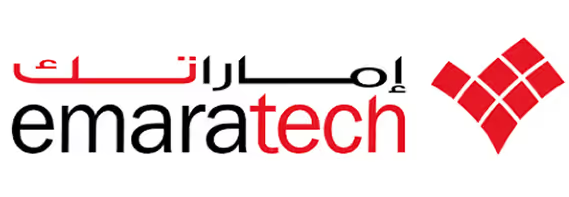
«التحول الرقمي هو عامل تمكين أكثر من كونه هدفًا».

من واقع خبرتك، ما هي الخطوات في خارطة طريق التحول الرقمي الأكثر أهمية للمديرين الماليين لتحديد الأولويات في وقت مبكر؟
لقد حضرت ذات مرة مائدة مستديرة حيث سمعت أشخاصًا يقتلون مشاريع التحول الرقمي لأنهم لم يعرفوا ماذا يفعلون. يسلط هذا العدد الضوء على أهمية معالجة المشاكل التأسيسية قبل متابعة التحول.
من الضروري البدء من الألف إلى الياء؛ يعد تجهيز المحللين أمرًا حيويًا قبل الغوص في تصور البيانات للإدارة العليا. لا يزال هناك سوء فهم مفاده أن التحول الرقمي لا ينطوي إلا على إنشاء لوحات معلومات جذابة للرؤساء التنفيذيين دون التأكد أولاً من أن المحللين لديهم الأدوات والبيانات المناسبة. يجب أن تكون قاعدة البيانات التأسيسية التي يستخدمها المحللون أيضًا أساسًا للوحات المعلومات المقدمة للقيادة. وبدون هذه الرؤية الشاملة، ستفشل الجهود.
يمكنني أن أؤكد لكم أن فريقي لا يقضي 10 إلى 12 ساعة خلال أسابيع الإغلاق. نحافظ على ساعات عمل معقولة، وفي العام الجديد الماضي، استمتع العديد من أعضاء فريقي بالشواء في الصحراء بدلاً من العمل. نحن لا نتحمل الفوضى المعتادة خلال عمليات الإغلاق في نهاية الشهر. يرجع هذا النجاح في المقام الأول إلى ستة أشهر من العمل الشاق لتحسين عملياتنا، الأمر الذي جعل الإغلاق أكثر سلاسة.
أقوم أيضًا بتطبيق نموذج تدقيق الخدمة الذاتية، مما يسمح للمدققين بالوصول إلى المعلومات الضرورية مباشرةً بدلاً من سؤال أعضاء الفريق. وبهذه الطريقة، يمكنهم الحصول على أي بيانات يحتاجون إليها بشكل أسرع دون الحاجة إلى طلبها.
لقد ذكرت في مقالتك أن فرق التمويل تقاوم أحيانًا استخدام مؤشرات الأداء الرئيسية من الأنظمة غير المالية. هل يمكن أن توضح ذلك؟ ما الذي تعتقد أنه مطلوب للتغلب على هذه المقاومة؟
يمكنني أن أكتب الكثير عن فرق تمويل المقاومة التي تضطر أحيانًا إلى استخدام مؤشرات الأداء الرئيسية من الأنظمة غير المالية. يبدأ كل شيء بخلق بيئة إيجابية للمناقشة وفهم أن الإدارات المختلفة، مثل العمليات والموارد البشرية، لديها وجهات نظرها. نحن بحاجة إلى أن نكون مبدعين بما يكفي للتعرف على هذه الاختلافات وسد أي فجوات.
على سبيل المثال، قد تركز الفرق التشغيلية على تواريخ الطلبات، بينما تنظر الشؤون المالية في تواريخ الدفع. إذا لم نعالج هذه الاختلافات، فقد يؤدي ذلك إلى الارتباك. يجب أن نتحلى بالمرونة وأن نبني نظام بيانات يلبي احتياجات الجميع. عندما يشعر أعضاء الفريق بإحساس ملكية البيانات، فمن المرجح أن يعملوا معًا. إذا كانوا يعتقدون أن التمويل يهتم فقط بتقاريره الخاصة، فلن يرغبوا في التعاون.
من العلامات الجيدة للنجاح عندما تبحث الفرق الأخرى بنشاط عن بياناتنا أو تطلب الوصول إلى قواعد البيانات الخاصة بنا. هذا يعني أننا أنشأنا نظامًا يفيد الجميع.
مقالك* تناقش أهمية التحول الرقمي. كيف يمكنك التأكد من أن فريق التمويل الخاص بك يستخدم التكنولوجيا دون الشعور بالإرهاق؟
أعتقد أن بعض الأدوار غالبًا ما يتم شغلها بناءً على الخبرة والأقدمية بدلاً من المؤهلات الفعلية. كان التحدي الذي واجهته عندما انضممت إلى emaratech هو أن فريقي كان قلقًا بشأن عبء العمل وكيفية إدارة العلاقات خلال المراحل الانتقالية. أخبرتهم ألا يقلقوا بشأن تلك الجوانب التي تقع خارج عالمهم. يتعلق الأمر بالقيادة التي تتطلب لمسة أكثر نعومة. عندما دخلت، كان لدي مبدأ واحد: أنا مسؤول عن نجاح فريقي وإدارة أي تغييرات. أبلغتهم أنهم بحاجة إلى بذل قصارى جهدهم، وفي المقابل، وظيفتي هي مساعدتهم على إدارة التغيير حتى لا يشعروا بالارتباك.
عندما تكون هناك شكوك أو مخاوف بشأن التغيير، من المهم أن نكون قدوة وأن نخلق مساحة يشعرون فيها بالراحة والدعم. إنهم بحاجة إلى فهم أن التحديات ستظهر، لكننا سنتكيف ونجد الحلول معًا. إذا تمكنا من إبقاء خطوط الاتصال مفتوحة وضمان مشاركة الجميع في العملية، فلن يشعروا بالإرهاق من التكنولوجيا أو التحولات التي ننفذها.
[*رابط لمقال تامر: https://fpa-trends.com/article/digital-finance-transformation-skills-now]
ماذا تعتقد أنه سيكون مستقبل التمويل في الشرق الأوسط؟
الجانب الوحيد الذي يختلف فيه الشرق الأوسط عن بقية العالم هو الحاجة إلى مستشارين/استشاريين ومحاسبين ضريبيين، بالنظر إلى أن منطقة دول مجلس التعاون الخليجي تنضم إلى بقية العالم في تطبيق نظام ضريبي.
بالنسبة لبقية الجوانب، فإن الضغط هو نفسه بالنظر إلى مدى ديناميكية عالم الأعمال، والعالم الآن متصل بنسبة 100٪. التحدي كبير بالنسبة للمهنيين الماليين حيث سيستمر الطلب على «مراقب مالي» نموذجي في الانخفاض. في الوقت نفسه، هناك حاجة إلى محلل مالي يتمتع بالمجموعة المناسبة من المهارات الشخصية وتحليلات البيانات/المعرفة بالعلوم وتكنولوجيا المعلومات. يجب أن يستجيب ذلك للاحتياجات التنظيمية لإعداد التقارير الهادفة ومؤشرات الأداء الرئيسية المالية التي تنقل نتائج الأعمال بشكل فعال والتقارير المالية التي تتوافق مع المعايير واللوائح الحالية.
سيفضل المستقبل المهنيين الذين يمكنهم دمج تكنولوجيا المعلومات والعمليات لربط مجموعات البيانات المالية والتشغيلية، وإنشاء مجموعات بيانات جديدة قادرة على محاكاة سيناريوهات الأعمال على الفور من خلال تعديل العناصر التشغيلية الرئيسية. يجب أن يستعد المحترفون الشباب لمستقبل يتطلب هذه المهارات والقدرات.
كيف ترى تأثير الذكاء الاصطناعي والتحول الرقمي على مستقبل صناعة التمويل؟
الذكاء الاصطناعي هو خطوة تتبع التحول الرقمي. لن يعمل الذكاء الاصطناعي ما لم تكن لديك البيانات المالية جاهزة بطريقة يمكن للذكاء الاصطناعي التعامل معها كنقاط بيانات.
- في السنوات الخمس المقبلة، سوف يلغي الذكاء الاصطناعي/التعلم الآلي الحاجة إلى وظائف المحاسبة الأساسية.
- سيقلل الذكاء الاصطناعي من عدد الموظفين المطلوب لـ FP&A والوظائف الأخرى.
- سيضيف الذكاء الاصطناعي عناصر لا تقدر بثمن إلى وظيفة الخزانة.
كل هذا يبدأ بالاستفادة من تقنيات التحول الرقمي، سواء كانت مجانية أو مدفوعة. أوصي بتحسين مهارات الفريق بالمعرفة اللازمة، لأن الاستثمار في الحلول باهظة الثمن غالبًا ما يؤدي إلى فوائد قصيرة الأجل قد يتم تجاهلها مع التغييرات في الإدارة العليا. يجب على فرق التمويل بناء قدرتها على استخدام التقنيات المجانية المتاحة للتكيف مع الأعمال واحتياجات العملاء الداخلية.
أنا فخور بحالتي استخدام. في المرحلة الأولى، حولت 80 ساعة من العمل اليدوي إلى 30 دقيقة من تحديثات نماذج البيانات وحققت وفورات قدرها 80 مليون دولار. في المرحلة الثانية، قمت بتحويل جميع التقارير الأساسية، مما جعل التقارير التفصيلية وتقارير الإدارة والتحليلات المخصصة سهلة وعادة ما تكون بنقرة واحدة فقط. وقد أدى ذلك أيضًا إلى تمكين علاقة تدقيق الخدمة الذاتية.
حي
تامر أبو مسلم هو المدير المالي للمجموعة في emaratech. إنه خبير مالي عالمي متمرس يتمتع بخبرة تزيد عن 20 عامًا في أدوار القيادة المالية، ويتخصص في التحول والخزينة والتحكم وتطوير وظائف التمويل ذات المستوى العالمي. لقد نجح في قيادة مشاريع إعادة التنظيم التجاري البارزة في الشركات متعددة الجنسيات، مع التركيز على تسريع النمو وخفض التكاليف ووضع الشركات لتحقيق نتائج تجارية أعلى من الاتجاه.
تامر بارع في بناء وقيادة فرق قوية، وخلق بيئة تعاونية مزدهرة، وتبسيط المواقف المعقدة لتقديم حلول متسقة ومبتكرة وفعالة. في المناصب الأخيرة، لعب دورًا محوريًا في تصميم أفضل ممارسات التشغيل ونماذج تقديم الخدمات وتحسين الأداء المالي من خلال تصميم حلول التحول الرقمي وتحويل الأعمال في الشركات متعددة الجنسيات والكبيرة.



.avif)
«يتضمن التمويل الكثير من المدخلات الاستراتيجية كإنسان. يمكن للذكاء الاصطناعي أو أي نظام أن يمنحك لقطات سريعة، ولكن ما تغذيه مهم، وينطوي على الكثير من الحكم البشري على القرارات، لا سيما فيما يتعلق بالتدفقات النقدية ومتطلبات التمويل كشركة».

إلى أين ترى مستقبل التمويل في الشرق الأوسط في السنوات الخمس المقبلة؟
في السنوات الخمس المقبلة، من المرجح أن يشهد التمويل في الشرق الأوسط المزيد من الأتمتة واستخدام وحدات تخطيط موارد المؤسسات المتطورة. هناك دفعة كبيرة نحو جعل عملياتنا أكثر رقمية، خاصة بعد الطريقة التي اضطررنا بها للتكيف مع COVID. الهدف هو إدارة الأشياء بفعالية، حتى لو لم نكن جميعًا في المكتب. هذا التحول يعني أننا نستعد لمستقبل لا يكون فيه التواجد الجسدي أمرًا بالغ الأهمية كما كان من قبل.
منذ أن تم إدخال الذكاء الاصطناعي إلى وظيفة التمويل، كيف تعتقد أنه أثر على المتخصصين الماليين؟
لقد غيّر الذكاء الاصطناعي الأشياء حقًا للأفضل. في السابق، كنا نقضي الكثير من الوقت على Excel و PowerPoint، لجعل الأمور تبدو صحيحة وتحليل الأرقام. الآن، مع الذكاء الاصطناعي والأتمتة، يمكننا إنجاز الأمور بشكل أسرع وتقديمها بشكل أفضل. يتيح لنا التركيز أكثر على الأشياء المهمة، مثل اتخاذ القرارات واستراتيجيات التخطيط، بدلاً من مجرد التعامل مع الأرقام طوال اليوم.
مع ظهور الذكاء الاصطناعي والتحول الرقمي في الصورة، ما هي التحديات التي من المرجح أن تظهر في وظيفة التمويل في الشرق الأوسط؟
التحدي الأكبر مع الذكاء الاصطناعي والتحول الرقمي هو التكيف مع التغيير. يعد الانتقال من الطرق القديمة للقيام بالأشياء إلى المزيد من الأنظمة الآلية تحولًا كبيرًا للجميع. لا يتعلق الأمر فقط بالمهارات الجديدة - إنه يتعلق بتغيير طريقة تفكيرنا. إذا لم نتكيف، فسوف نتخلف عن الركب لأن كل شيء من حولنا يتحرك بسرعة. الشركات التي لا تواكب هذه التغييرات قد لا تنجح في السنوات العشر القادمة.
السيرة الذاتية:
فيناي هو خبير متمرس في الشؤون المالية والخزانة ولديه 12 عامًا من الخبرة في الإمارات العربية المتحدة والهند. يشغل حاليًا منصب أمين صندوق المجموعة في Hira Industries.
تغطي خبرته العديد من العمليات المالية، بما في ذلك جمع الأموال وإعادة هيكلة الديون والنمذجة المالية وإدارة التدفق النقدي. وقد قاد فيناي تحولات رقمية كبيرة، وقام بتنفيذ أنظمة مثل Oracle Fusion وKyriba Treasury Management، ولديه معرفة عملية بـ SAP. وقد نجح في إدارة فرق من المحللين الماليين، وتوجيه مبادرات خفض التكاليف في الخدمات المصرفية، والحفاظ على علاقات مصرفية قوية، وتحقيق تأثيرات إيجابية باستمرار على الربحية والتخطيط المالي الاستراتيجي.




«ستكون الرقمنة أمرًا بالغ الأهمية لمستقبل التمويل. سوف يتغير دور المحاسبين بشكل كبير مع تحول المزيد من المهام إلى مهام مؤتمتة، خاصة باستخدام أدوات مثل التشغيل الآلي للعمليات (RPA). سيحتاج المتخصصون في مجال التمويل إلى مهارات أوسع، بما في ذلك فهم التكنولوجيا والأعمال».

ما رأيك في مستقبل التمويل في الشرق الأوسط في السنوات الخمس المقبلة؟
يتجه مستقبل التمويل في الشرق الأوسط نحو تحول رقمي كبير. سنشهد اعتمادًا متزايدًا على الذكاء الاصطناعي والأتمتة والتكنولوجيا السحابية. يجب أن يتطور المتخصصون في مجال التمويل، ويطورون فطنة تجارية ومهارات استراتيجية أوسع، مع تغير دور المحاسبة التقليدية.
كيف تعتقد أن الذكاء الاصطناعي يمكن أن يساعد المتخصصين في المحاسبة والتمويل؟
يمكن للذكاء الاصطناعي أن يعزز بشكل كبير تحليل بيانات الأرباح والخسائر (P&L). من خلال التشغيل الآلي لجمع البيانات وتحليلها، يمكن للذكاء الاصطناعي تقديم رؤى أعمق وتوقعات أكثر دقة. يتيح ذلك لمحترفي التمويل تحديد الاتجاهات واتخاذ قرارات مستنيرة وتحسين الأداء المالي، وبالتالي تحقيق نتائج أعمال أفضل.
ما هي النصيحة التي تقدمها لطلاب التمويل في السنة النهائية على وشك دخول سوق العمل؟
يجب أن يكون المتخصصون في الشؤون المالية واثقين من قدرتهم على التقدم إلى أدوار المدير المالي. سيصبح البقاء في مناصب محاسبية بحتة أمرًا صعبًا بشكل متزايد حيث ستتم أتمتة المهام المحاسبية الروتينية ذات المستوى المنخفض.
نصيحتي هي تطوير منظور ريادي شامل للشركة، يمتد إلى ما وراء التمويل. وهذا يشمل فهم الجوانب القانونية والعقود ومراقبة الائتمان وإدارة المشاريع. إن اعتماد هذه الرؤية بزاوية 360 درجة سيساعدهم في الحفاظ على مكانة عالية المستوى وضمان بقاء مهاراتهم ذات قيمة في السوق.
حي
جيوفاني فونيس نوفا هو المدير المالي في مجموعة بحري ومزروي في الإمارات العربية المتحدة، مع حوالي 30 عامًا من الخبرة المالية. في الأصل من إيطاليا، شغل مناصب مهمة في القطاع المصرفي والشركات متعددة الجنسيات مثل Permasteelisa Group.
إلى جانب الإشراف على الشؤون المالية، يتمتع جيوفاني بخبرة واسعة في الإدارة العامة وسمعة طيبة في القيادة القوية. وهو معروف بتسهيل توسيع الأعمال، وتوجيه عمليات الاندماج والاستحواذ، ودفع تحسين الأداء الرئيسي وتقديم تخفيضات كبيرة في التكاليف.
أدلة لتتبع تمويلك بسرعة
أدلة مدروسة جيدًا لمساعدة قادة التمويل في الإمارات العربية المتحدة
انضم إلى المجتمع
شكّل مستقبل التمويل. انخرط مع كبار القادة في صناعة التمويل وكن جزءًا من مجتمع كبار مسؤولي المستقبل.









.avif)


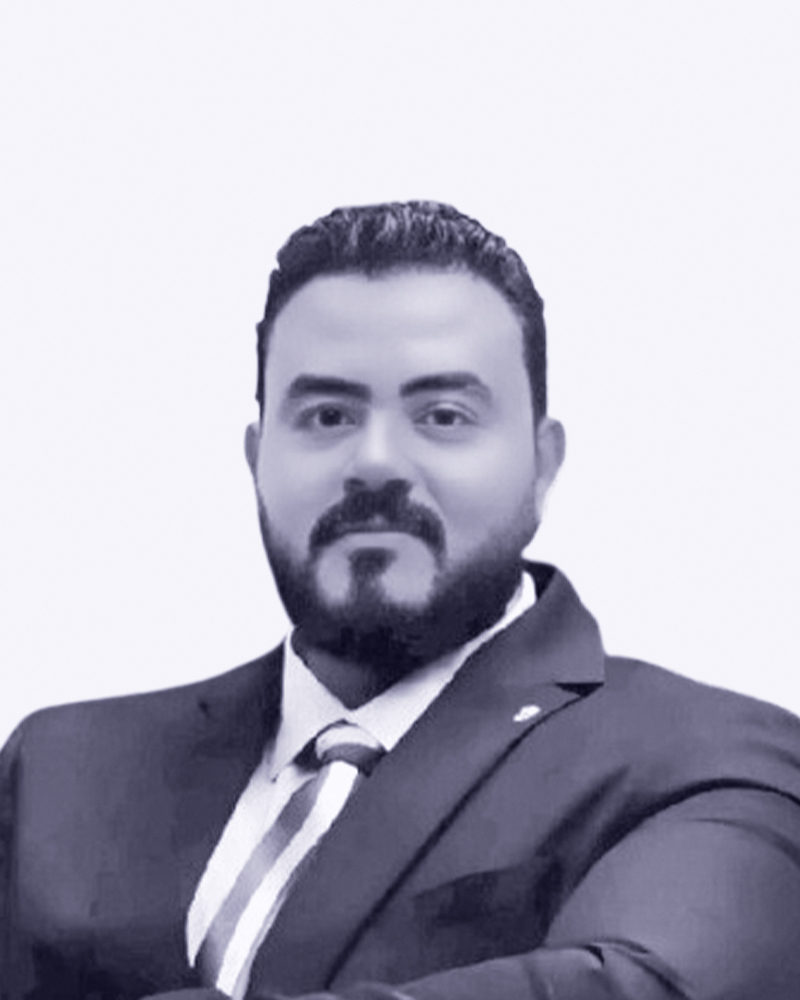
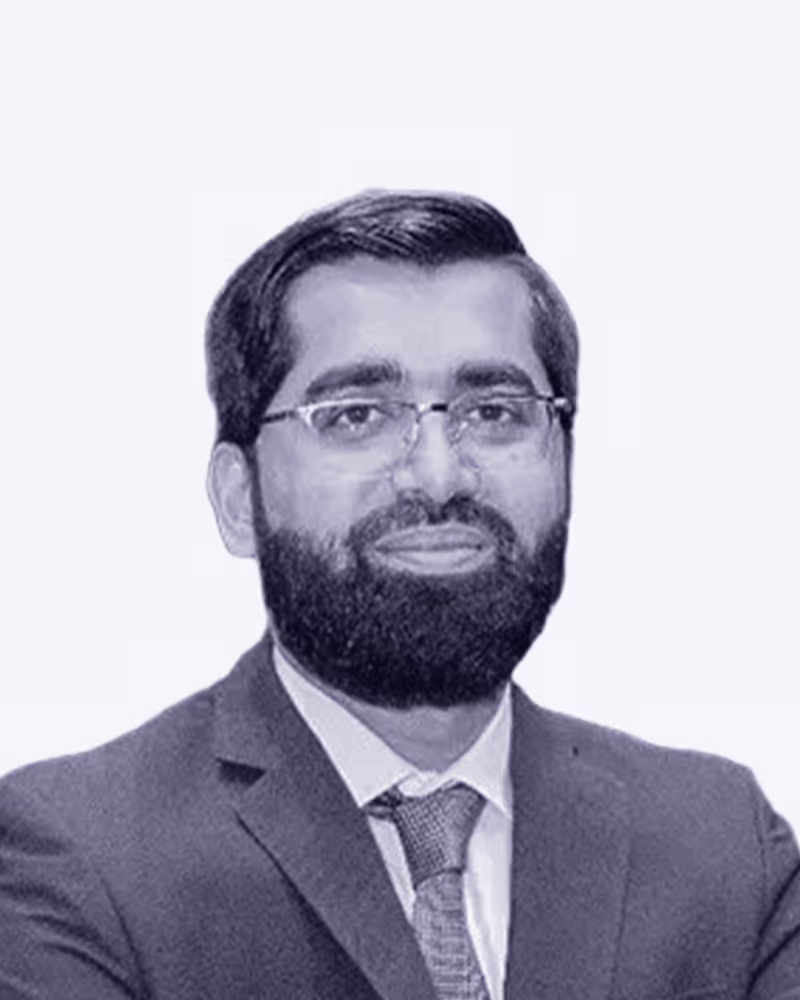
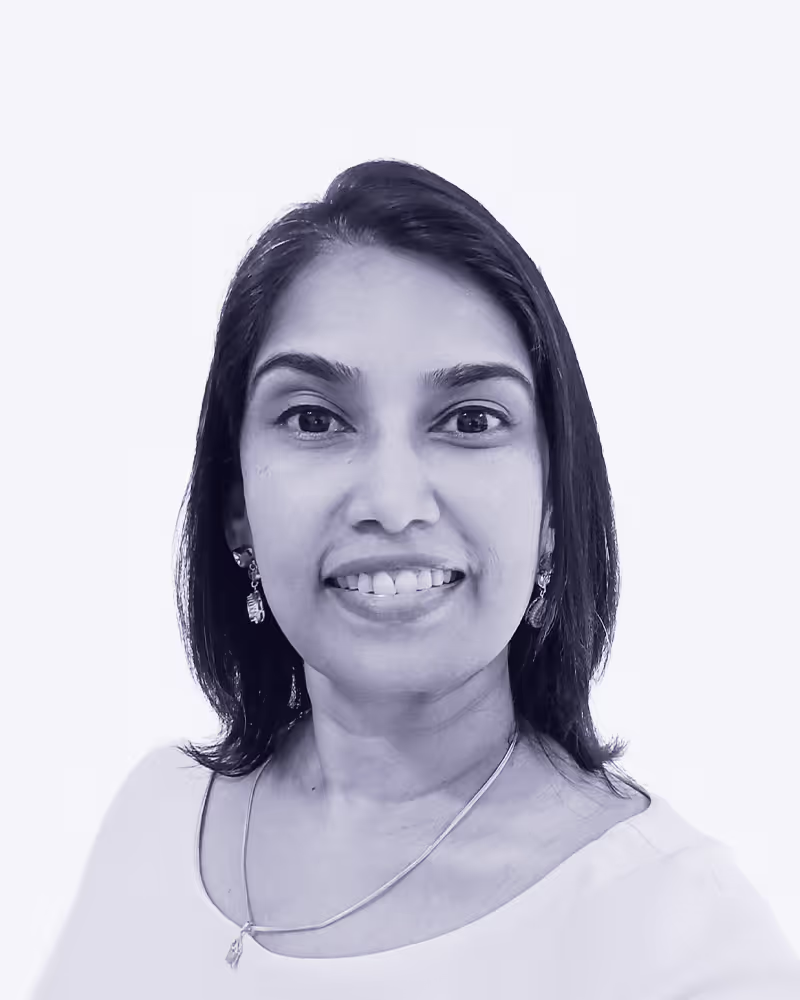
.avif)
